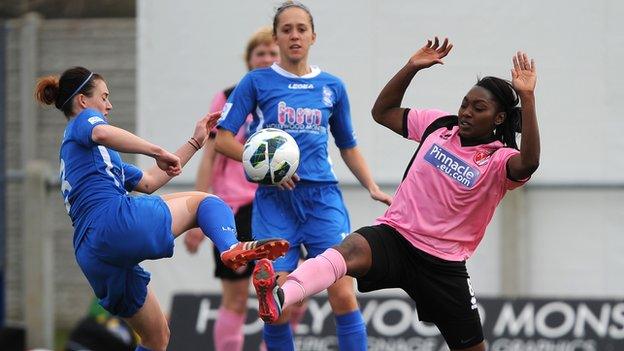Marcus Bignot's journey: From rejection at Birmingham to Solihull, via Crewe
- Published
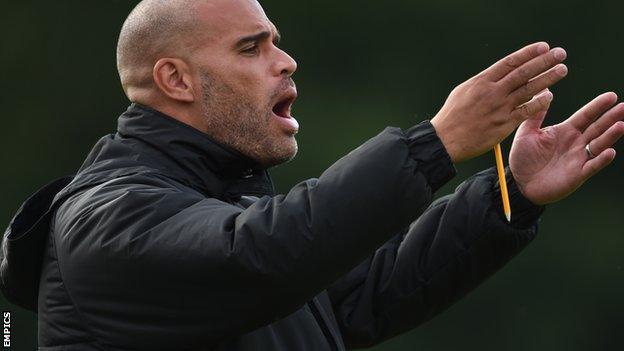
Marcus Bignot was appointed as Solihull Moors manager in June 2011
Solihull Moors manager Marcus Bignot is old school.
He doesn't do Facebook. He doesn't do Twitter.
More than that, the 41-year-old Brummie, reared from the school of hard knocks, believes in serving a proper apprenticeship as a manager - just as he did as in his 20 years as a player, at almost every level of the professional game.
The boyhood Birmingham City fan released as a teenager by his favourite team played in non-league for Telford United and Kidderminster Harriers.
He then found his way back into the professional game with Crewe Alexandra, Bristol Rovers, QPR, Rushden & Diamonds and Millwall. And, before he became manager of National League new boys Solihull Moors, he helped to cut his teeth in women's football, coaching Birmingham City Ladies.
But it is as manager of Solihull, where he has worked for the past five years without a contract, that he has done most to enhance his growing reputation - and all at a time when Telford and Kidderminster have gone in the opposite direction.
So much so that when the Moors went up in April, it was actually the Harriers they swapped places with, in the process becoming the top non-league side in the Midlands.
"Why," asks Bignot, "do these things happen? Why did the fates decide that we go up at the expense of Kiddy? I wanted to manage Kiddy, I could have managed Telford. Instead, I'm at Solihull."
Hard times at Damson Park
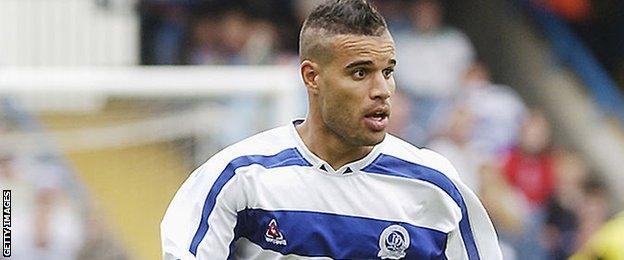
Marcus Bignot made 394 Football League appearances with Crewe Alexandra, Bristol Rovers, QPR, Rushden & Diamonds and Millwall, on top of five years in non-league with Telford and Kidderminster Harriers
Although he retains an interest in Blues Ladies, purely on the coaching side, it is as manager of the Moors that Bignot is currently most preoccupied as he prepares for life in the fifth tier of English football after winning the National League North title last season.
Solihull were the first of the National League's four newly-promoted clubs to go up last season, following a highly satisfactory campaign in which the Moors won 25 of their 42 league games, to go up by nine points.
A successful conclusion to his fifth season in charge. But it was not always like that at Damson Park, the home of the club created in 2007 by the merger of two under-achieving non-league local rivals Solihull Borough and Moor Green.
Having taken over following the death of long-serving boss Bob Faulkner and the departure of his assistant Micky Moore to Mansfield, Bignot's managerial career did not start well.
"I didn't know the level," he said. "I didn't know the players. I lost my first seven games and I was suspended for five of them."
The Moors turned it around to avoid relegation. But worse was to come off the field the following season when the financially-challenged club were close to going under. "We nearly folded," he winces.
"It never got reported. That's how tightknit we had the dressing room.
"There's a reason why two clubs merged and it wasn't because they were doing well. I remember the chairman saying we had a £30,000 deficit and that we might struggle to reach the end of season.
"A friend of the club, Ian Atkins [the former Birmingham City and Everton midfielder] introduced us to Mike Turl, who we knew at Bristol Rovers and was a very successful local businessman here in Solihull.
"Ian invited him down to look at the books. I'll never forget the meeting. It turned out it wasn't £30,000. It was more like £60,000. His advice was you need to shut the doors and fold the club.
"Staff went without pay from January to the end of the season and every player took a 10% pay cut. It was a horrible period, but we had to do it."
The Moors the Merrier
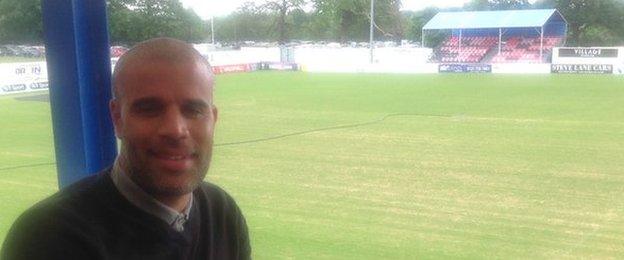
Solihull Moors boss Marcus Bignot has been in charge at Damson Park since the summer of 2011
"That's when the lightbulb switched on," continued Bignot. "Mike Turl told me if you're going to do this you've got to know the business side of running a club. It's not a lesson Jose Mourinho is ever going to have to learn, but it's why I wanted this journey.
"The higher you go up in football a sponsorship deal does not scratch the surface of a first-team budget. Here, it's massive. But it's not all based on money and it didn't happen overnight. We had a three-year strategic, business plan, a lot of hard work and sacrifices. But, if you have people who go above and beyond, then you know success is coming.
"In five years, we've been through everything. Back then we had a first team and an under-18 team. Now we're a community interest club with 30-odd youth and junior teams, reserves, an academy and a disability section. What we've done off the pitch in three years is remarkable. But what you get in non-league is good people who do it for the love.
"When we first came in we were averaging just over 200 crowds. Now we're past the 700 mark and we have to the end of this season to get the ground up to 4.000 capacity.
"In football today too many fans are outpriced. But there's something special about non-league. Fans can still speak to the manager and rub shoulders with the players. And we're the cheapest in this league. It's £13 on the door next season. Most Conference North clubs charge more than that.
"We're now the top Midlands non-league club, the fastest growing club in the Midlands. But the story isn't finished yet."
Proving Mrs Thomas wrong
"Being released by Birmingham City was not great," recalled Bignot. "All I'd ever wanted to do was play for Blues.
"I remember going to the dole office for the first time. It was on the same road as my school (Institute Road, in Kings Heath).
"Whenever we talked about careers, my Geography teacher Mrs Thomas had often told me 'you won't be a footballer'. And I was thinking Mrs Thomas is nearly right here. But that just drove me on. I saw that as failure.
"I got into non-league football. Season after season passes by and I wouldn't say you give up on the dream, but realism comes in and I was fortunate to meet good people on the way.
"I came across a chap called Tom Stack. I was doing nothing in the day when I was at Telford. He got me into coaching and he believed in me. Even at 19 or 20, I was being told I'd got a career in coaching.
"It's not about the money. I was getting paid well. I was getting more playing for Telford than in my first year at Blues and in proper men's football too. But I fell in love with coaching."
Learning the managerial ropes
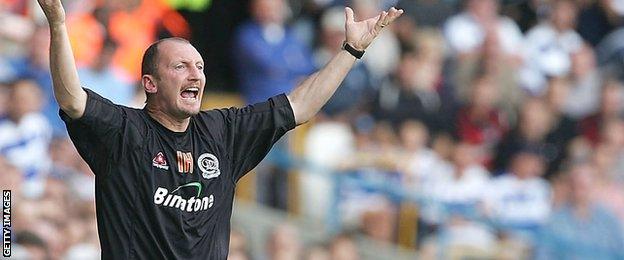
Ian Holloway signed Marcus Bignot three times - first for Bristol Rovers, then twice at QPR
"My years at the Bucks Head with Telford kind of mapped out my career. They moulded me, put my feet on the ground. That's where I matured and grew up.
"At Kiddy, under Graham Allner, I first saw how to manage a football club, then Dario Gradi took it to the next level.
"I could have been happy and content at Telford and accepted the situation but I still had the mindset to be a pro footballer. I spent all day in the gym and, when I went back in, I appreciated it all the more.
"The rumours and talk had stopped at Telford. And, when I went to Kiddy, they were then the biggest non-league club not just in the Midlands but in the country. We put in a great run, but Macclesfield were even better and we just got pipped for the title.
"There was a lot of attention around Lee Hughes, who was scoring all the goals and he went to West Bromwich Albion. But I was getting a bit of attention too and I went to Crewe.
"I knew Dario was in the stand watching me away at Hednesford. Harriers turned down the original offer but I had 100% faith in Graham Allner that it would happen. Straight from the Conference into the Championship. It showed it's possible.
"Under Dario, every coaching session he did, I'd be looking at it from my own perspective as a coach - 'what can I take from this?' I always had my coaching head on when I was at Crewe.
"Then it was on to Bristol Rovers to work under Ian Holloway, who then took me to QPR too, on deadline day. Each manager I've worked for has had an impact but Ollie had an impact on my entire life. He signed me three times.
"I went to Rushden, who had just come into the League and we stormed it, my first taste of winning something. But Max Griggs' business fell on hard times, the mainstays of the team all went. I went back to QPR and got promotion again with Ollie, to the Championship. I was fortunate enough to captain the club and play under John Gregory too. Some really good times.
"Then to Millwall. I was Kenny Jackett's first signing. I ended up having chronic tendinitis in my knee, which put an end to my time there, but what a place to play. You hear cliches about the crowd being the 12th man but that's really the case at Millwall. You have to play well. If you didn't, you'd be booed off.
"I joined not long after the riot (following the Birmingham City play-off semi-final defeat in 2001). I'll never forget telling one local journalist that I was a Birmingham fan and him telling me 'for God's sake don't tell them that."
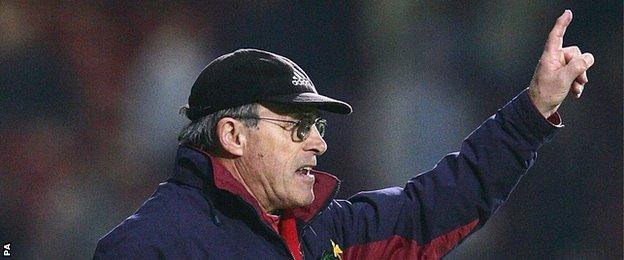
When working under Dario Gradi at Crewe, Bignot says "I always had my coaching head on"
Blues Ladies was my Championship Manager
Bignot's time in ladies football was clearly not wasted. His wife Emma was the long-time first-choice goalkeeper for Arsenal and the Republic of Ireland. "We met at the Women's PFA awards night," Mr Bignot reflects with a smile.
Not many managers can say that. But Bignot is a soccer boss of the 21st Century, equally versed in coaching girls, boys, women or men. A football man through and through.
He was the man who helped form Birmingham City Ladies and still retains a healthy interest in the club now they are up in the Women Super League.
"I modelled Blues on everything I learned from Dario at Crewe," he said. "I had live people to work with. Working with Blues Ladies was like having my own Championship Manager.
"I was working for the Birmingham County Football Associate doing a festival at Billesley Park. It was a five-a-side tournament and I was responsible for the warm-ups. One of the teams was wearing the Blues strip and one of the girls was the sister of one of my friends at school. I didn't even know she played.
"I got speaking to his dad, who was the chairman and manager, and he said 'would you come and do some coaching? We've only got one player left and she's thinking about going.' That player was [England international# Karen Carney. She stayed, we went around and got the best under-12s we could find.
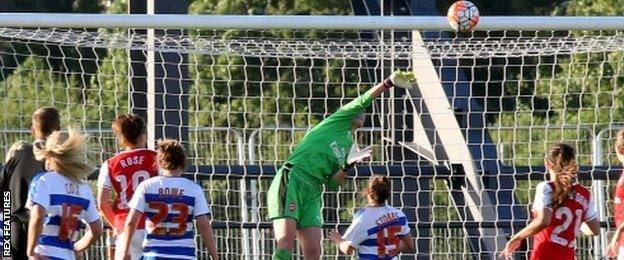
Marcus Bignot's wife, Republic of Ireland international Emma Byrne, still keeps goal for Arsenal Ladies
"They paid subs. And, out of that, they gave me a pound each. What a touch. I started coaching, then they wanted me to become manager, so I thought why not?
"We shot through the leagues. We overtook Villa and Wolves and won 10 Birmingham Senior Cups on the bounce. And Karen went on to get over 100 England caps, so did Eniola Aluko.
"Karren Brady was going to pull the plug, only for them to be saved by a private benefactor, but I could not keep committing to coming up from London, as I was at QPR by then.
"I love Birmingham City Ladies. To see them progress from where they were, to being the best in the Midlands, to compete nationally, then in the Champions League is a fairytale story.
"When the Women's Super League came in and Blues came knocking, I said of course I'll help but it will have to be under the radar. I didn't want to get stereotyped and pigeon holed.
"I've got to get in with my career making a name for myself in the men's game. It's a hobby for me. I will always help the ladies because I love doing it. But I just don't want to be at the head of it.
"I look back on my playing career with pride but I've had more pleasure on this side. You get more satisfaction when you invest time in others and you see them succeed. And one day I want to manage in the Football League and mirror my playing career."
- Published1 June 2016
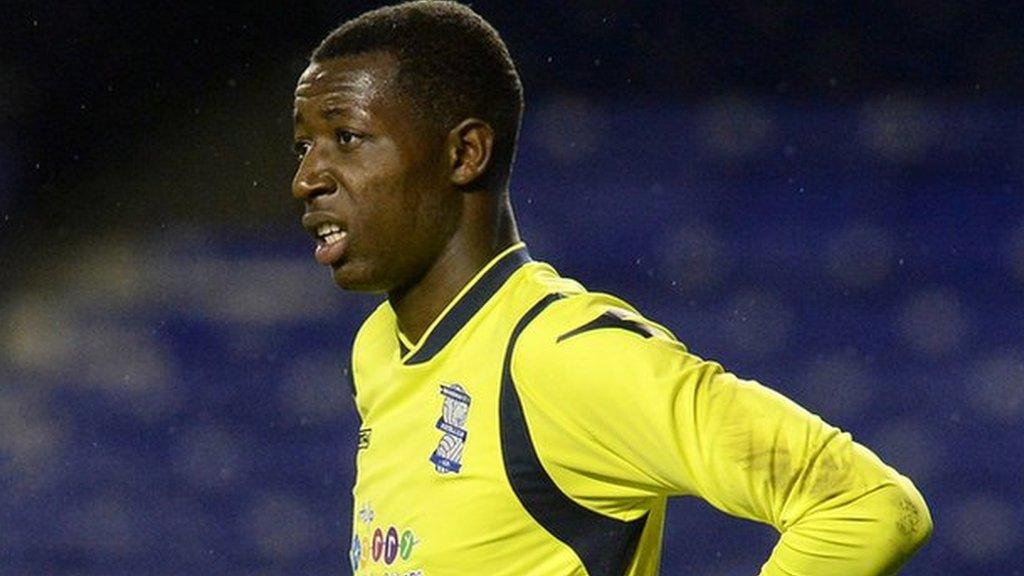
- Published14 May 2016
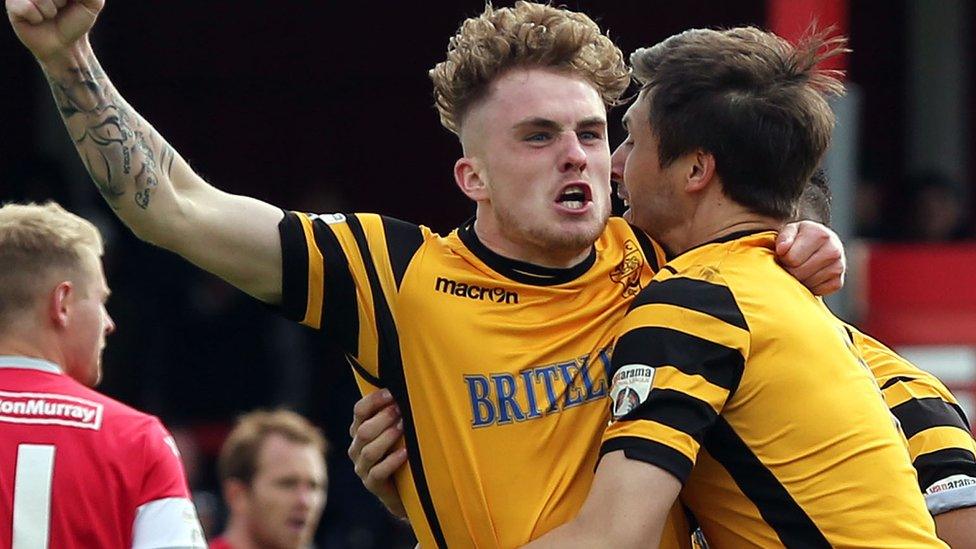
- Published23 April 2016
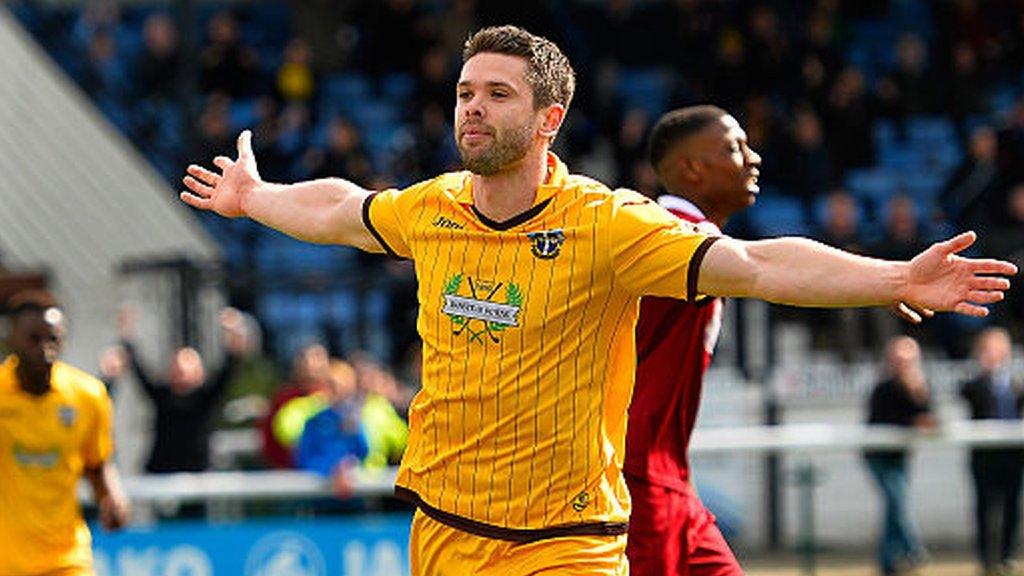
- Published13 April 2016
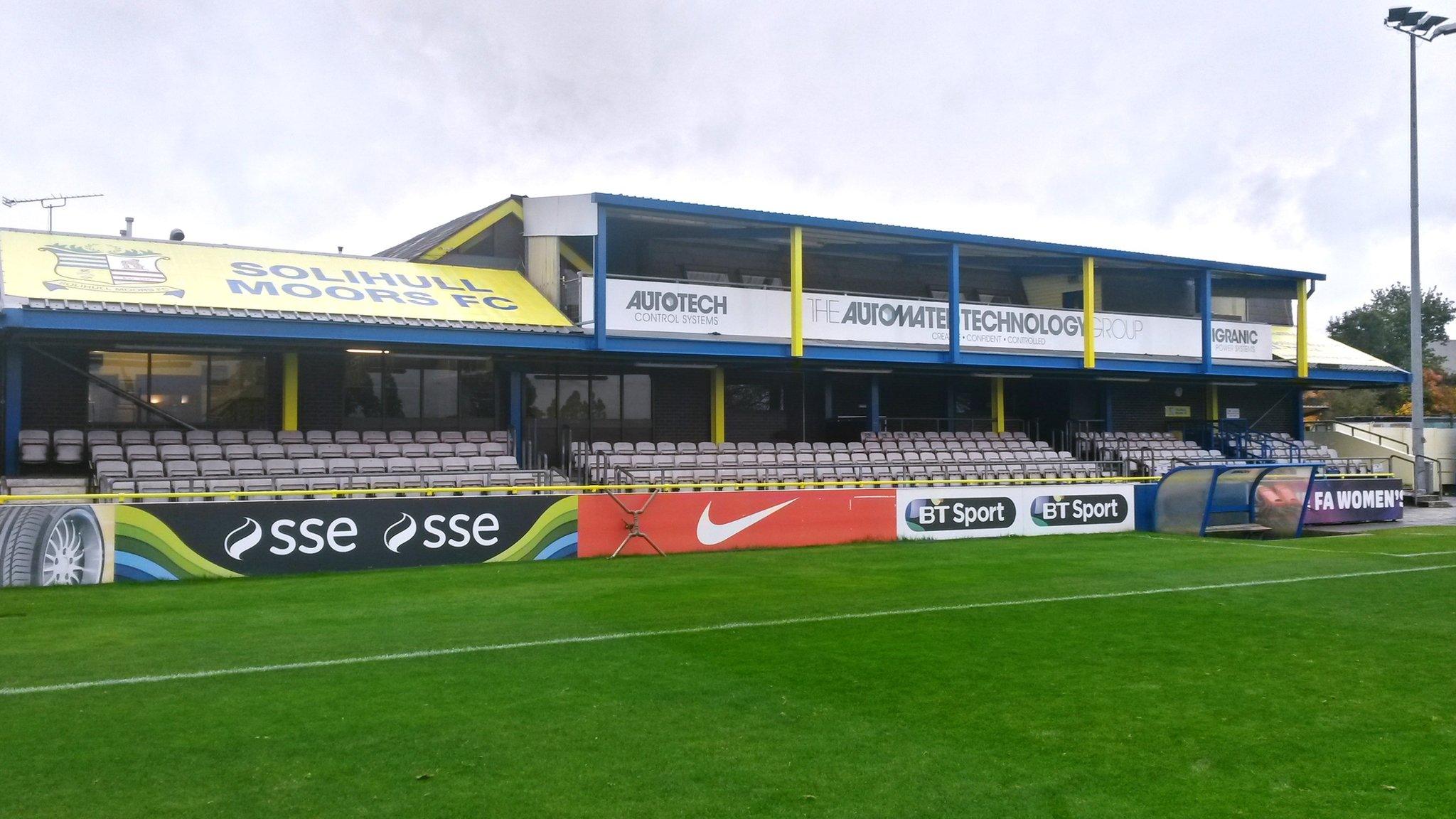
- Published17 October 2013
